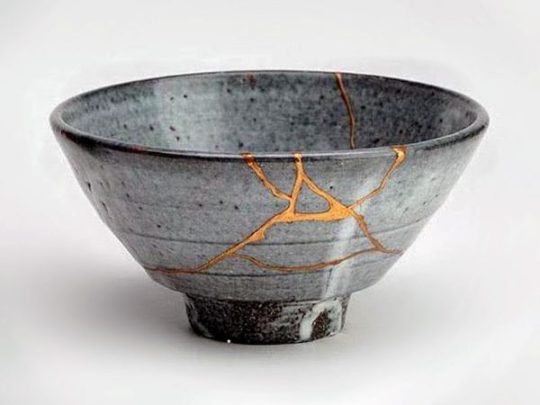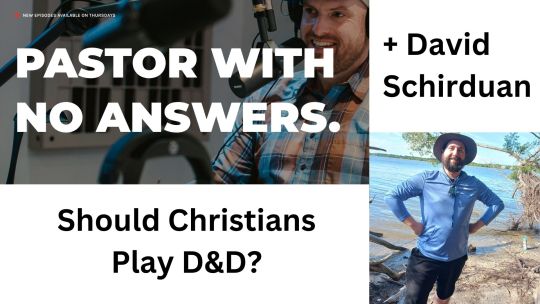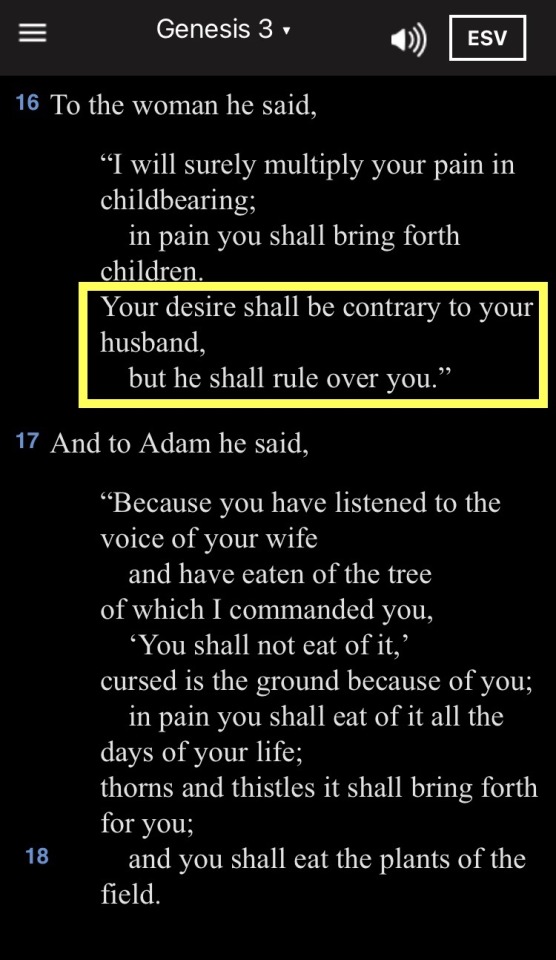#christian culture
Explore tagged Tumblr posts
Text
I think people mean well when they insist that America isn't a Christian country but it just obfuscates the situation and makes it more difficult for minorities to frame their experiences. America is a fundamentally, structurally, ideologically Christian country from top to bottom. It's exhausting, it's suffocating, and it's the truth. Nearly all political forces, pop culture phenomena, and major life philosophies here are either built on Christianity or propped up as subverting Christianity in a way that is, of course, still entirely about Christianity. Leftwing movements here that are ostensibly hostile to Christianity still ultimately structure their worldviews around their own versions of salvation, rapture, original sin, eternal judgement, heaven, and hell. Most people here fail to see Christianity all around them, influencing every facet of American life, for the same reason that a fish can't see water.
#christianity#christian hegemony#christian culture#christian imperialism#religious minorities#religion#minority perspective#the jewish experience#jewish#jumblr#jewblr#being jewish#cultural christianity#culturally christian#minority experiences#supersessionism#jewish people#jews#religious studies
1K notes
·
View notes
Text
There's a genuine concern about Christian nationalism here in the States with Trump most likely entering office in 2025 and the agendas the Republican party has. Several states are legally requiring the Ten Commandments to be hung up in classrooms, Bible stories to be taught in classes, PragerU curriculums to be utilized. Our country's children- and us- are going to be endrenched in Christian ideology beyond any cultural norms we've ever seen, and we need to be vigilant about who we're getting our information from and putting our trust in.
To be clear, I do NOT think all Christians are Christian nationalists, nor are all Christians the bad guys. Liberal and non-Trumpie Christians are our allies. The kind of Christianity I'm talking about here is Evangelical Christianity- the kind that commands sharing your religion with other people so they don't go to Hell, giving up control of your personhood in favor of what the Bible teaches and church believes.
Thankfully, Evangelical Christianity has a lot of special lingo, and they love to cycle through the same talking points. This isn't some mystery we know nothing about- this is something, like anything else, we can use critical thinking to track and reason through. As a former Evangelical Christian living in the Bible Belt, here's some buzz points you're going to want to be aware of. Please feel free to add on if I missed anything, or correct me if I got anything wrong.
Phrases
Calling the Bible:
the Word (of God / God's word)
the Gospel (of Jesus)
The Scripture(s)
The Word / Gospel according to [book name]
Calling God:
Yahweh (my apologies to Jews for writing out the full name. I wish I didn't have to. There's been a rise lately in Evangelicals saying it, unaltered, and it's extremely rude to y'all.)
King Jesus
(the) Lord / Lord God / the Lord our God
(Heavenly) Father / Father in Heaven
(the) Savior
About the world:
We live in a fallen/broken world / there is so much sin around us
We can't trust our feelings / we can only trust God's word
We can do nothing apart from God
We must humble ourselves before God
We need Godly leaders in this country / we need God to lead this country
God works in mysterious ways
We need to say "Merry Christmas" more (not joking)
Wars and rumors of wars (this pertains to the end times as described in Revelation)
Topics
LGBTQ+ issues:
"Homosexuality"
"Transgenderism" (the 'ism' is important)
"Pornography"
"One man, one woman"
"God's picture of marriage [heterosexuality]"
"Family values"
"Sodomy"
"An abomination"
Abortion issues:
"Pro-life"
Pro-choice people called "pro-death" or "pro-murder"
"Sanctity / protection of life / the unborn"
"The choice of life"
Women framed as childbearers, mothers, and wives, generally given little worth otherwise
Immigration issues:
"Border security"
"Protecting our society"
"Drug crisis" (which to be fair is a problem, but not the whole of this issue)
Emphasizing Arab / Middle-Eastern immigrants as particularly dangerous
Emphasizing Hispanic immigrants as dangerous
Israel
'The Holy Land'
'God's chosen people'
"Zion"
"The birthplace of Jesus"
"Persecuted"
Empahsizing right to "self-defense"
General topics:
Humility
Modesty (pride dress, sexuality)
Sexual immorality
Sin
Trusting God / not trusting own feelings
Preparation for end times (imminent or mysterious timing depending on who you ask)
"Protecting children"
"Family values"
#project 2025#agenda 47#donald trump#christian culture#ex christian#liz says hi!#//long post#liz is rocking it!
70 notes
·
View notes
Note
autistic christian culture is never being properly taught how to pray as a child but all the sources you can find are like "praying is about building a relationship with god try to build a relationship with god" and it's like,, okay?? that's what it's about?? but how is it done?? what's the structure?? i can't do the thing?? if you don't me how to do the thing?? or even just one of the ways to do the thing??
like,, please 🥲 i don't want flowerly language i want an answer to my question
hahah mood
#christblr#chrumblr#✝️umblr#christian culture#christianity#If your looking for a genuine answer then I would suggest talking to a priest or pastor#if you physically can’t go to church then try emailing or dming
73 notes
·
View notes
Text
Why does the Church create an inferiority complex with suffering but not with talent?
There’s so much emphasis placed on “Christians in the West know NOTHING of suffering, they’re not being persecuted! They’re not starving! They’re not in a war!”
No, they’re not. But, first, let me tell you that I have faced suffering where being killed for my faith would have been a relief. So no, Christians in the West aren’t just wimps that don’t experience “real” suffering.
And second, why do we make suffering a competition when talent isn’t? Yes there are talent competitions and talent often involves competition, but we don’t go “Wow, that lady has a beautiful voice. But she’s not as great as [insert famous singer here], so her talent isn’t REAL talent.”
???? No! We say she’s really talented and we appreciate her gift!
The same mentality needs to be true for suffering. To be able to say “Wow, this person’s suffering is incredibly hard to bear. Yes, there may be others worldwide who suffer ‘more,’ but her suffering is real and she’s crushed under it.”
I saw a man I follow on Facebook this week make a post about how “we aren’t even really suffering, we’re all wimps, we’re not being persecuted.”
This man is a man my friend believes has religious OCD (I’ve never met him but am friend with his wife). Aka, he has a condition I myself know to be one that RUINS lives. And he’s probably telling himself his suffering isn’t significant enough to be considered suffering.
It’s heartbreaking. No, we shouldn’t be defined by our sufferings, but it’s important to be able to recognize, “Yes, what I am going through is crushing, and the pain I am feeling is valid.”
15 notes
·
View notes
Text

kintsugi: exists
christian youth pastors:

#people will come up to you when you're going through a tough time and go 'have you ever heard of that japanese technique'#idk it cracks me up how many people i've met who've brought it up unprompted#christian culture#kintsugi#christianity
13 notes
·
View notes
Text

I went on a Christian podcast to dispel some of the fear and misconceptions about D&D.
I hope folks listen to this and feel encouraged to try out roleplaying games for themselves, and discover what a life-giving hobby it can be!
9 notes
·
View notes
Text
Seeing all the Orthodox Christmas celebrations here on tumblr has reminded me of this absolutely delightful animated short film that German television shows every December.
It starts with a group of sheep waking up in the middle of the night, all alone. Their shepherds are gone! However, one sheep has heard that tonight is a Holy night, and a very special human baby has been born...
-Is it a boy or a girl?
-Huh? I don't know. It's the Holy Infant, so tender and mild...
-Well, if it's tender and mild, it has to be a girl.
-Okay, fine, it's a girl. And our shepherds have gone to see this baby girl, and we should follow them!
After some discussion, the group sets out. At first, they don't know where to go, but then a donkey tells them that the newborn baby is supposed to be in the stable behind the trash dump. More discussion, more adventures, and finally, the one sheep that didn't really want to come along gets angry enough to leave the group and go back home.
Oh crap! King Herod's wolves! Tall and cool and wearing sunglasses and with more than a hint of menace. And our poor sheep has left the safety of the flock and is all alone!
The wolves ask about the baby; king Herod wants to kill honour it. The lonely sheep tries to stall, but is soon intimidated into telling all it knows:
-In the stable behind the trash dump! That's where the girl is!
The alpha wolf snorts and turns away, telling his colleague:
-This idiot doesn't know anything. After all, we are looking for a boy.
The poor sheep is left alone on wobbly knees. And soon after, the rest of the group comes to collect him.
(They never do find the baby, or its gender, but they find their shepherds in the end.)
#christian culture#<- i guess; it's not overly religious but it's obviously about the nativity story#german children's movies#one of my favourite jokes
2 notes
·
View notes
Text
To all Christians who think patriarchy is supported by the Bible, it’s LITERALLY listed in the Curse put on humanity after the fall, right next to birth being extra traumatic, the ground being hard to cultivate, and death. So if trying to increase people’s lifespans, giving mothers epidurals, and innovating better farming technology are good things, then SO IS FIGHTING THE PATRIARCHY.

#down with the patriarchy!#christian culture#the curse#fuck the patriarchy#patriarchy is unbiblical#christianity#christian faith
11 notes
·
View notes
Text



Altarraum der Jesuitenkapelle Trier
3 notes
·
View notes
Text
'Tis the season to unpack some stuff about Christmas from a minority perspective:
Christmas is a Christian holiday. The fact that many celebrate it in an irreligious way (which is valid!) does not change its origins, connotations, symbolism, nor what it has historically meant for religious minorities.
The idea that Christmas is "secular" (read: neutral) is a product of Christian hegemony and the blindness of many in Christian countries to the permeation of Christianity as "default" culture.
When someone says they don't celebrate Christmas since it's a Christian holiday, it is not actually reassuring or helpful to say something along the lines of "oh well it's just a secular day of family & presents for everyone! So you can celebrate it too!"
Though the above statement is usually well-intentioned, it is often distressing to hear because it is untrue and is erasing our lived experiences. The reflexive effort to make Christmas universal is a cultural reverberation of the millennia-old evangelizing effort to make Christianity universal, and as such, can be very uncomfortable for religious minorities.
#christmas#christianity#cultural christianity#culturally christian#christmas season#christian hegemony#supersessionism#minority experiences#jewish#jumblr#jewblr#being jewish#judaism#religious minorities#the jewish experience#christian culture#christmas time#the holidays#holiday season#jews#jewish life#tis the season
19K notes
·
View notes
Text
i have an interesting question! ex-christians and christians alike feel free to interact.
#christian culture#christianity#ex christian#the lord's supper#eucharist#liz says hi!#tw religion#tw blood#poll#tumblr polls#my polls#polls
33 notes
·
View notes
Note
It really frustrates me when people who aren’t Christians celebrate our holidays. If anyone did that with any other religion they would (rightfully) be called out but when it comes to us nobody cares or worse people will tell us we that deserve it or say we are over reacting.
No matter what someone’s opinion is on this whole debate we can all agree how frustrating it is to have people belittle us whenever we say something about this matter
45 notes
·
View notes
Text
I’ve been catching up on the “culturally Christian” discourse. I’m a bit disappointed that the most active posts are atheists going, “How dare you call me Christian?” instead of taking the opportunity to interrogate some aspects of themselves that are not as de-Christianized as they’d assume. I spent a large part of my youth trying to find those blind spots and I’m a second generation non-Christian.
But this points to what I see as one of the corner stones of Christian culture: emphasis of belief over practice. It started with Paul’s epistles where he introduced the centrality of faith. Jesus spoke of faith in the gospels, but not nearly as much as exhortations about how to live a moral life. Next, the Council of Nicaea established its creed, a series of “we believe…” statements that Christians still recite every week. Nicaea and every subsequent Council has laid down further obligatory sets of beliefs and anathematized anyone who refused to toe the party line. Christian states have made heresy a crime. Conversion became a prerogative. Many were killed because they refused to submit.
This emphasis on belief got cranked up to 11 in the Reformation. Where Catholicism teaches the importance of faith and works, Calvin taught sola fide, salvation by faith alone. Modern philosophy started around the same time and was self-consciously a merely intellectual exercise, unlike ancient philosophy. So when major breaks with Christianity came on the scene, it shouldn’t be a surprise they defined themselves with terms like “atheism” and “skepticism.” Their emphasis was also on (lack of) belief. Atheists evangelize their beliefs and are quick to ridicule any one for wrongthink. Politics are much the same, especially here on Tumblr.
Now contrast that with Judaism and Islam and other religions where relatively more emphasis is placed on correct practice than correct belief. There are certain doctrinal red lines, of course, but it doesn’t come up as often as the importance of prayer ritual (think of phylacteries or salat) or following certain behavioral rules (dietary restrictions, wearing certain clothing). Christian chauvinism tends to look down upon halakah and shariah as being backward or “medieval”. From an orthopraxy perspective, the Christian emphasis on highly specific doctrine might seem like a weird fixation.
I think it’s no coincidence that the Ethical Society was founded by a man who had once trained to become a rabbi. His organization focused on secular congregations and public outreach. Many of the culturally Christian atheists of the time were more interested in publishing tracts or debating Christian ministers.
So to think that even though you come from a Christian culture and perhaps were even raised actively in a church, that simply switching out one belief for another will radically transform who you are and how you interact with the world is incredibly naive. Start by looking at the ways in which you privilege belief over action in your life.
4 notes
·
View notes
Text
So I have this semi-secret liturgical art project. It's supposed to be a cycle of four images: white, red, violet and green. I had a lot of trouble putting the violet image together. It wanted to be in portrait format when all images have to be landscape. This morning, I realized that if I let the crucifix and the priest switch places, such that the crucifix is in the middle and the priest is off to one side, then the image works!
3 notes
·
View notes
Text
Christian Church culture is fucked up. I’ve been to a ton because I was in a military family (lots of moving), and every time, there’s so much focus on what counts as *not* loving/good/etc that there’s constant pressure to have a perfectly clean mask on while you’re there. Every member of that society is forced to lie about our imperfections despite being reminded often *by our leaders* (the biblically accurate ones anyway) that imperfection is inevitable for us. The whole reason we needed help in the first place is we do shit that breaks relationships and hurts people, making them a little more loveless and continuing the cycle. How are we supposed to support each other (“bear one another’s burdens”) and love each other (every other syllable out of Jesus’ mouth) if we can’t even be completely real without being slightly distanced *at best*? Heart hospitality’s missing, It’s straight up toxic. Subtle when you grew up in it, but toxic. Top priority being “what is loving” and it being “not what is not loving” might sound interchangeable on paper, but this is what happens when “avoid not-love” is more emphasized than “do love” in a community. Thank you for coming to my TED Talk 😆.
#christianity#church#christian faith#christian culture#church culture#flaws#no one’s perfect#hypocrisy#forgotten goals#values#fucked up
2 notes
·
View notes